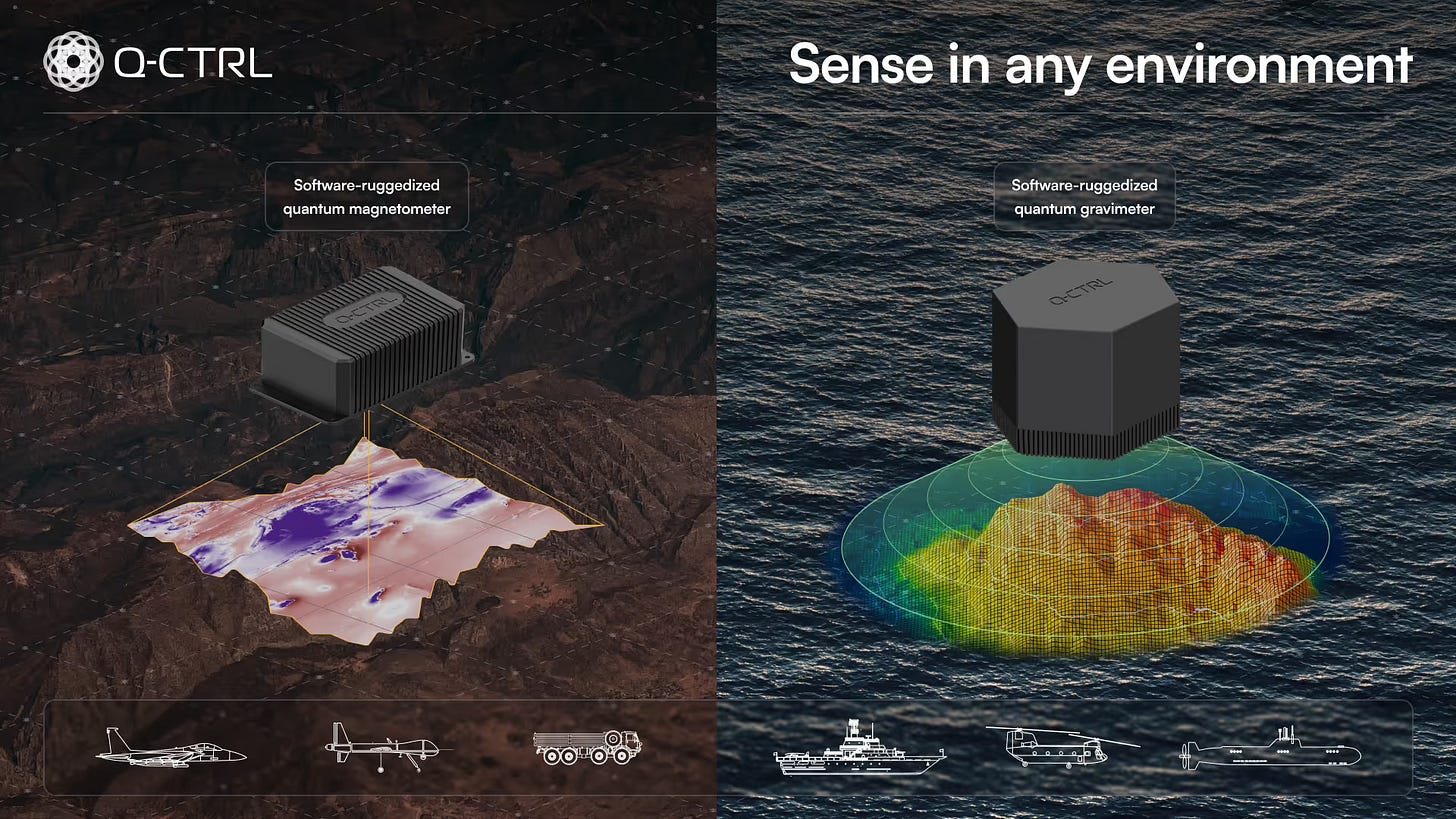Quantum Nav: Freedom From GPS
Military Innovation of the First Order

Washington DC 4 SEP 2025
Space is the ultimate high ground and America’s most critical advantage and vulnerability. Intelligence, communications, navigation and synchronization of actions, have placed space assets into the top tier of hour-1 targets.1 In the Indopacific, this vulnerability is particularly acute because America and its allies plan to be operating deep inside China’s interior lines - far away from friendly support and protection. Deny, disrupt, distort or destroy space-based capabilities and you blind the Leviathan.
Central to everything is GPS. Look at almost any activity in Ukraine and the criticality of GPS is visible. Australia and the US appear to have made a major breakthrough in the development of a secure and reliable alternative to space based navigation. Once proven, shrunk to a manageable size per application, and mass produced, this innovation will change the way of warfare. It will relieve a significant burden from space dependent capabilities.
The loss of space-dependent capabilities will still sting and complicate operations but they will no longer change the game. These new systems not only add redundancy to legacy networks, they appear to offer a true alternative, enabling independent, organic, and interference-free navigation. Size matters. It is only a matter of time until these new systems are shrunk to fit all the applications for which they offer a vital alternative.
The emergence of new military capabilities automatically trigger the development of counters. MIL does not have the technical knowledge to propose possible avenues from which a counter might emerge. As the technology depends on planetary topography, manipulating that seems to be beyond even science fiction. However, there will no doubt be chinks in the armor that will be exploited by adversaries. Counters to the counters will develop and so it goes. For now, this seems to be a critical game changing technology that will give the West a vital edge.
“If we’re relying on space-based, GPS-based PNT, [Position, Nav, Timing] then we may be in trouble,” Vice Chairman of the Joint Chiefs of Staff Adm. Christopher W. Grady told industry executives last week at a National Defense Industrial Association conference in Washington, D.C. Explaining that despite recent improvements, GPS signals remained susceptible to jamming, Grady said developing alternative PNT sources was “a passion project,” for him, and something that “I am extremely focused on to enable the warfighting team to go do their job.”
Grady’s observations got some real-world emphasis over the weekend when GPS jamming, allegedly by Russia, forced the plane carrying EU Commission President Ursula von der Leyen to land using paper maps and ground-based navigational signals, according to the BBC, although there’s some confusion among experts owing to contradictory technical data.
There is no better illustration of the importance of alliances to national security. Australia is playing an important role in this, and similarly advanced defense projects, and it strikes MIL that playing games with Australian trade and its critical need for submarines seems extraordinarily short sighted and no way to treat a friend.
Wes O’Donnell has written a superb article on this issue and we link to it here in full because his treatment of the subject is so engrossing.
“Space assets” includes “space-dependent capabilities”, in other words the entire data chain to include terrestrial infrastructure, systems and platforms.



